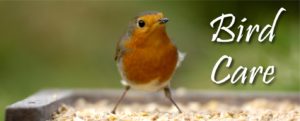Birds can be wonderful pets. They can bring years of enjoyment into a home. However, owning a bird takes no less responsibility than owning a dog or a cat. Make sure you take the time to do your homework and research the species you want before you get one. Start by making a list of reasons you want a bird and a list of traits that are important to you. Compare species of birds to narrow down your list to a few that make the grade. Several questions to take into consideration include the following:
Why do you want a bird? As a pet for the children? As a companion to you or to another bird?
How old are the children in the family? If your preteen or teenager wants a bird, who gets the bird when they go off to college?
Where will the bird stay? Indoors? Living room? Outdoors in an aviary?
Do you want to teach your bird to talk? How much noise is acceptable to you, the family, and the neighbors? Some species are naturally quieter; others can scream and screech.
How much time are you willing to commit to the bird on a daily basis? Half an hour a day is needed just for daily feeding and cleaning. What about playtime and socialization? These are essential.
How long do you want the bird? Finches live about four years; Budgies, nine years; Cockatoos, forty years; an Amazon or African Grey, up to fifty or more years. Make sure you plan for the bird’s entire life. This means including for the bird’s future care in your will.
How much are you willing to spend for up-front costs such as purchase price and the cage and accessories? Prices range from several dollars for a small Finch or Budgerigar to several thousand dollars for a Hyacinth Macaw.
How much are you willing to spend on food, veterinary care, and toys?
Who will watch the bird while you are on vacation with the family? Some birds do well at boarding facilities while others are much better at home and require someone to come in and care for them.
Where will you buy the bird? Breeder? Pet shop? Individual that no longer wants or can keep a bird?
How many birds do you want? Some birds do well alone with enough human attention. Others are much happier with others of their own kind to socialize and live with.
Health is a big consideration in getting a bird. They can carry diseases that can infect other birds in the house and possibly humans also. Learn what a healthy bird should look like and how she should act. Take your new bird to an avian veterinarian within a day or so of purchase for a check up.
If you have a preference for male or female, remember it may be difficult to tell the difference in some species. If breeding the bird is in the plans for the future, DNA testing or surgical sexing is available at some veterinary clinics.
These questions should just be the start of the consideration process. Birds are intelligent, amazing animals that deserve a long, healthy, happy life. If you determine one will fit in with your lifestyle, enjoy your new feathered friend.
Will your bird be a good traveler?
When it comes to travel, the disposition of every bird is different. Many small birds such as canaries, finches, and budgies are high-strung and can easily become stressed. They are best left home. Others, like the gregarious Amazons, love to travel. Still others, such as cockatoos and macaws, may suffer separation anxiety, and thus will not abide being left home alone. For many birds, travel is interesting, keeping their active minds entertained. Best of all, travel lets them be with their favorite person all day.
Traveling with your bird is not difficult and can be fun, if he wants to come along. Need help with determining whether your bird is an eager companion? Try answering these questions:
Is your bird accustomed to a routine? (And will you be able to maintain it?) If your bird is very young, his feeding, play, rest, and hygiene patterns may not be well established. Travel is best for those mature birds who can adapt to a change in routine.
How long will your bird stay comfortably in his cage? You learn to read your bird’s many moods at home. On the road, you need to pay extra attention to them to prevent stress. Before taking a long trip, we recommend that you familiarize your bird with the travel carrier. Then start with short trips, and gradually increase their duration.
Does your bird get motion sickness? Like humans, your bird can experience motion sickness. His brain can receive conflicting messages – from his eyes and the rest of his body – about whether he is in motion. Again, starting with short trips will help you determine if motion sickness is a problem for your bird.
Is your bird healthy? Travel causes stress for owners and their pets. Schedules change. Diet changes. Water consumption is often disrupted. Travel is more difficult for some birds than others. For example, some experience phobias, while others tire easily. Before any extended trip, it is a good idea to take your bird to your veterinarian for a health check-up. The stress of travel could cause serious problems in a bird that is already ill.
Is it legal to transport your bird on this route? Believe it or not, depending on the species of your bird, it may not be. Some states exclude certain species. It is your responsibility to check in advance before you travel. For any bird, interstate travel usually requires a health certificate signed by your veterinarian within ten days prior to your departure.
The site,www.aphis.usda.gov/import_export/animals/animal_import/animal_imports_states.shtml, has links to the latest regulations on interstate movement of animals, written and maintained by individual states. International travel is much more complex. Always ask your veterinarian for advice.
Will the trip and the destination be safe? For safety concerns, it is best if your bird travels in a specifically designed travel cage. Your bird should not be left in the car unattended, so it may be necessary to make special arrangements depending upon your travel plans. There are also places you should not take your bird, for example, exceptionally cold or hot climates. Also check your route and destination to make sure there are no disease outbreaks or established quarantines that could affect your bird.
Will you have time for your bird at your destination? If your answer is “no,” home care is a better option. You will need to have time to play with your bird, feed him, clean his cage, etc. If this will not work into your travel plans, consider a pet-sitter.


